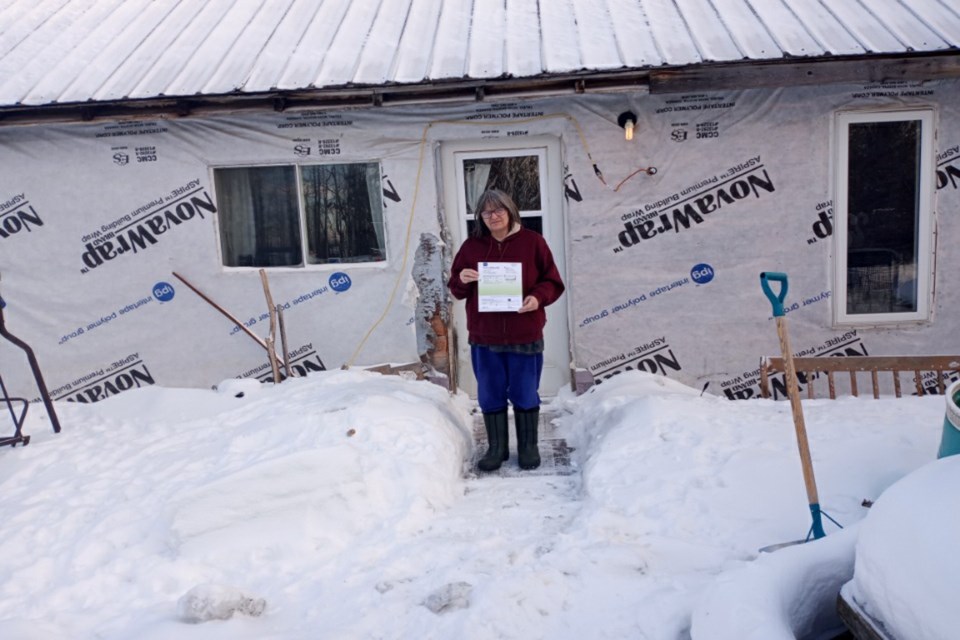WESTLOCK – For many Albertans, a sudden surge in utility costs has come as a shock and those in the Town and Country region are no exception.
Cheryl Stoddart's January power bill through Epcor was only $369.85 for her 800 square foot house in Fawcett, however it spiked to $710.73 in January after she turned her heat on, a price she says she has never seen on her bill before.
“This just isn’t right,” Stoddart said in an interview Feb. 1. “I can’t afford it.”
Unable to work due to a disability, Stoddard has a monthly income of under $2,000. And while she says she expected an increase in her power bill, she didn’t think it would double after turning her furnace on.
While trying to work with her disability worker, Stoddart was unable to get any help as the worker could only help if Epcor disconnected her power. When reaching out to Epcor about the bill she says they couldn’t help either, citing her usage as the reason for the increase.
“Nobody tries to stand up for people like us,” she said.
Stoddart says she received a letter from Epcor earlier this year noting an increase in rates due to unpaid bills from other users, which has left her questioning why she should have to pay for the late payments of others.
“They’re out to get us, and they’re getting us good,” Stoddart added.
In 2019, the NDP government’s cap on electricity was removed by the UCP. While the now opposition-NDP has called for the cap to be returned, no moves have been made by the current government. Managing director of Anova Energy Sophie Simmonds said that it could cause “exponential growth” of rate cap losses for taxpayers to repay in a statement made earlier this year.
Stoddart has since been in contact with Epcor and has worked out a fixed rate of $0.076 per kilowatt hour and her late fees have been waived, however she has been left to pay the exorbitant bill for January and expects it will take her three months to fully pay it off.
And this issue has not been exclusive to Stoddart as Athabasca-area resident Karyn Harper has also noted a significant increase in her bills. While Harper was able to lock into a fixed rate of $0.689 per kilowatt hour, she saw a spike in the distribution and transmission charges for both her power and gas bills.
Harper, who is retired, saw her gas and electricity bills spike to around $770, a significant increase from her usual monthly bill expenses of around $440 thanks to both transmission and distribution charges alongside the general increased cost.
“We cannot just focus on the actual cost of the product, we have to look at what we’re being charged to deliver it to us,” said Harper. “We need more people to complain about this."
With her husband looking into retiring, Harper questions how they will be able to keep up with these bills that are “like a second mortgage” and has been seriously considering moving to another province to avoid the astronomical costs.
“How can you stay home on pension cheques when those bills are higher than the cheques?” questioned Harper.
To make a difference, Harper suggests reaching out the Utilities Consumer Advocate (UCA) at 780-310-4822 and the Alberta Utilities Commission at 780-310 4282.
The AUC, an organization whose goal is to educate and mediate Alberta’s electricity and natural gas consumers, has highlighted five reasons for these shocking increases in bills.
Firstly, the AUC notes that consumption increases during the winter season as people spend more time indoors and often turn the heat on in their home, contributing to higher usage.
Transmission and distribution charges have also seen an increase in the winter months, making up for around 65 per cent of the total bill and are calculated by the distributor regardless of which plan or retailer the consumer has chosen.
The federal carbon tax has also played a role in higher gas bills and a general increase in energy has also seen prices change and increase from month to month.
Finally, the UCA notes the impact of COVID-19, which has seen more people working from home and doing school remotely, contributes to higher usage as well, however AUC also notes that working from home generally saves on other costs and its impact is minimal.



